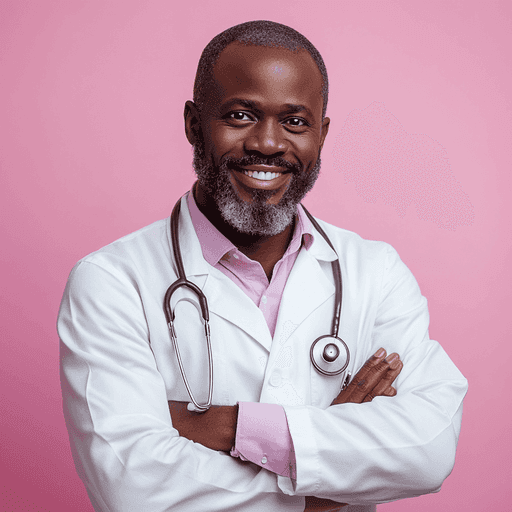STD Testing Challenges for People with Disabilities: Breaking Down Barriers
Mar 7, 2025
People with disabilities often face barriers to STD testing, such as physical accessibility, communication challenges, and lack of inclusive healthcare. Despite being as sexually active as their peers, they experience higher rates of STDs due to limited access to healthcare and sex education. Addressing these barriers and promoting inclusive sexual health services is key to improving care for individuals with disabilities.
Barriers to STD Testing for People with Disabilities
Despite advancements in healthcare, many medical facilities are not fully accessible to people with disabilities, creating significant obstacles to STD testing.
1. Physical Barriers in Healthcare Facilities
Many STD testing clinics and medical offices are not designed to accommodate individuals with mobility impairments, making it difficult for people in wheelchairs or with other mobility challenges to access care.
Common physical obstacles include:
Lack of wheelchair ramps or elevators, forcing individuals to navigate stairs.
Narrow hallways and exam rooms, making maneuvering a wheelchair difficult.
Inaccessible exam tables, requiring assistance for transfers.
2. Communication Barriers
For individuals who are deaf, hard of hearing, or nonverbal, STD testing can be challenging due to a lack of communication accommodations.
Common communication challenges include:
No availability of sign language interpreters in testing clinics.
Healthcare providers not trained in alternative communication methods (e.g., writing, speech-to-text technology).
Difficulty expressing symptoms or concerns for individuals with intellectual or cognitive disabilities.
For more information on healthcare accessibility, visit the CDC’s disability and health page.
The Stigma Around Sexual Health and Disabilities
One of the biggest barriers to STD testing for people with disabilities is the misconception that they are not sexually active.
Many healthcare providers assume that disabled individuals do not engage in sexual activity, leading to fewer discussions about sexual health, STDs, and testing recommendations.
Some individuals with disabilities feel ashamed or embarrassed to bring up sexual health concerns due to cultural stigma.
Lack of comprehensive sex education tailored to individuals with disabilities means many people are unaware of STD risks and prevention methods.
Breaking down these stigmas requires education, advocacy, and more inclusive healthcare practices.
How to Improve STD Testing Accessibility for People with Disabilities
1. Expanding Physical Accessibility in Clinics
Healthcare facilities must ensure ADA-compliant ramps, automatic doors, and wide examination spaces.
Clinics should invest in adjustable-height exam tables to accommodate patients who cannot transfer easily.
Home testing options should be available for those who cannot travel to a clinic.
2. Improving Communication Accommodations
Clinics should provide sign language interpreters or alternative communication devices for deaf and nonverbal individuals.
Healthcare providers should be trained in disability-inclusive communication methods.
Digital STD testing consent forms should be available in accessible formats (Braille, large print, and screen-reader compatible versions).
3. Educating Healthcare Providers on Disability-Inclusive Care
Training programs should teach clinicians how to address the sexual health needs of disabled patients without assumptions or biases.
Sex education should be tailored to include individuals with intellectual and developmental disabilities so they understand STD prevention and symptoms.
Accessible STD Testing Options for People with Disabilities
For individuals facing barriers in traditional healthcare settings, alternative testing options can help bridge the gap.
1. Home STD Testing for Greater Accessibility
At-home STD tests provide a discreet and accessible option for people with disabilities who face mobility or communication barriers.
Easy-to-use self-collection kits that do not require a clinic visit.
Confidential results from home, eliminating the need for transportation.
Available for common STDs like chlamydia, gonorrhea, syphilis, and HIV.
2. Partnering with Inclusive Clinics
Some STD testing providers actively work with disability-friendly clinics to ensure accessible testing environments.
For accessible STD testing, visit STDCheck, our trusted partner, which offers:
Over 4,500 testing locations, many with wheelchair accessibility.
No doctor’s visit required—book online and visit a nearby clinic.
Discreet and fast results, usually within 1-2 days.
When Should You Get Tested?
People with disabilities, like everyone else, should get tested for STDs regularly based on their level of sexual activity.
Consider STD Testing If:
✔ You have had unprotected sex or multiple partners.
✔ You are experiencing unusual symptoms (burning, itching, sores).
✔ You have not been tested in over six months.
✔ You need a routine sexual health check-up.
For private, fast STD testing, visit STDCheck, our trusted partner, and book your test today.
Conclusion
Despite misconceptions, people with disabilities are just as likely to be sexually active as others, yet they face significant challenges when it comes to STD testing.
Key Takeaways:
Physical barriers like lack of ramps and narrow exam rooms prevent access to STD testing.
Communication difficulties make it harder for some individuals to express symptoms or request testing.
Sexual health stigma often prevents open discussions about STD risks in the disabled community.
Inclusive clinics and home testing options can help improve accessibility.
By advocating for disability-inclusive healthcare, we can ensure that everyone has equal access to STD testing and sexual health resources.

Dr. Michael Thompson
Dr. Michael Thompson is an expert in sexually transmitted diseases with extensive clinical and research experience. He leads campaigns advocating for early diagnosis and prevention of diseases like HIV and gonorrhea. He collaborates with local organizations to educate both youth and adults about sexual health.





